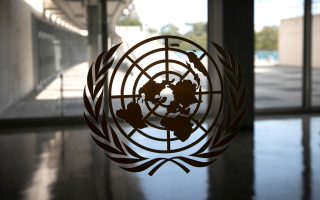PASOK is back on our TV screens

It is widely known that in Greece politicians are afraid of political debates. The charismatic leaders of the first period after the restoration of democracy in 1974 (who largely drew their political capital from the pre-dictatorial, non-televised period) had to leave for the public to see the first televised debate in 1996 between PASOK leader Costas Simitis and New Democracy leader Miltiades Evert. Since then, their irregular conduct before the elections is characterized mainly by a frustration with the conditions in which they are held because they promote parallel monologues, with the impractical help of the journalists present. The most important element that emerges from a debate, which is the subsequent discussion about who was more persuasive with his or her arguments and presence, is usually sidelined by the “bigger picture” created by the inability of Greek politicians to engage in political discourse.
If interest in debates is lukewarm during the election campaigns for new governments, even less attention is paid to the corresponding procedures concerning internal party elections, although already since the 2000s the election of party leaders has developed into an open process. There is often concern that such a public process will undermine party unity and it is therefore usually avoided.
This year, PASOK decided to give special importance to the debate held last Tuesday ahead of its leadership election. The fact that there are six candidates does not seem to have caused any concerns. On the contrary, it was decided that, at a time when the main opposition party (SYRIZA) is collapsing under the weight of its own internal problems, the image of a dialogue between the candidates will shine a light on PASOK as the “serious” opposition to the ruling conservatives.
Even if this was not the primary concern of all six candidates, it seems to have been served particularly well by all. Moreover – although still with several caveats – the debate was mostly conducted, not in the logic of parallel monologues, but with a direct dialogue, with questions and answers formulated by the participants themselves. It is the first time that such a format has been selected with the consent of all candidates and this is recorded as another innovation introduced by PASOK in the selection of its leader, after appealing to the “base” of the party, from 2004 onward.
Assessing the impact of a televised debate is always difficult. In the United States, we recently saw that a debate between President Joe Biden and Republican presidential candidate Donald Trump largely contributed to the replacement of the former (due to his problematic performance) by Vice President Kamala Harris in the presidential bid. However, this is a rare case and an example that is unique to the US, where the electorate gives special importance to those debates.
Another element from which one can perceive the potential influence that a debate can exert is the television ratings, but mainly the public debate it will cause in either traditional or new media. PASOK’s debate seems to have achieved both goals. The 600,000 viewers who watched it live and the diverse comments on the performance of each candidate is a first indication that a large part of public opinion has turned its attention to the socialists, that the party is re-entering or may re-enter the limelight after the long period of political marginalization or even stigmatization during the decade of the debt crisis.
Although there was no shortage of indirect or direct criticisms during the debate, what was emitted was the image of a “civilized” climate of political disagreement. Even if none of the six candidates prevailed by a margin against the others, all of them had the opportunity to (re)introduce themselves to their potential voters on October 6. In any case, the debates are mainly aimed at the undecided, and certainly the leadership contest in PASOK still hides a large degree of uncertainty. If one judges from the public comments that the candidates received, all six seem to have revealed their ideology.
Athens Mayor Haris Doukas, with particular nervousness and faithful to prepared answers, addressed those who lean more to the left, seeking to find a party to replace SYRIZA as the main center-left pole. Anna Diamantopoulou, with some awkwardness but calmness, spoke mainly to that confused pre-EU electorate, positioning herself as a better option than Prime Minister Kyriakos Mitsotakis.
Nikos Androulakis, playing an aggressive defense as the outgoing leader of PASOK, and MP Pavlos Geroulanos choosing the “noble” attack tried to represent mainly the intermediate solution of PASOK. MPs Nadia Giannakopoulou and Michalis Katrinis left their mark despite the secondary role they were actually called to play. Whose audience will eventually go to the polls in larger numbers will decide not only the election result, but also which of the candidates won the debate. But regardless of that, PASOK is back on our screens.
Vassilis Vamvakas is associate professor of sociology of communication at the Aristotle University of Thessaloniki.





